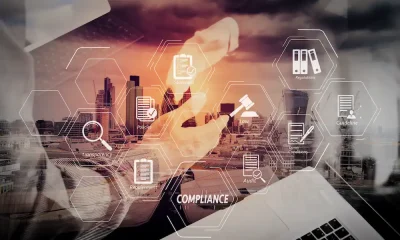Legal
How a business can manage international assets
Businesses of all sizes and sectors can have many different types of international assets. This can be both an opportunity and a risk, and smart financial and asset management can help you to make the most of the former while mitigating the latter.
There are several classes of international assets that you might carry. If you are a larger business, you might have real estate in multiple countries, such as offices, retail locations or distribution centers. Some companies have more unusual international real estate holdings, such as in investment property, production facility or even a residential unit or building used to host traveling employees or their guests. Real estate tends to be a complex asset to manage because the value can fluctuate over time.
Any object stored in those locations would also fall under an international asset, so you could have furniture, computers, production equipment or other machinery and supplies. Most of these fall under the category of depreciable assets and may zero out over time in a predictable manner.
If you produce something, your products are an asset that might be produced, stored and sold around the world. If you produce something in the continental US but sell to stores in another country or on another continent, those products are internationally held assets until they pass into the ownership of another party (such as the retailer). Depending on what you produce, their value may fluctuate or decrease over time.
Your international assets could also be intangibles, such as intellectual property that is copyrighted or trademarked under another jurisdiction. Publishing companies, for instance, may hold licenses to books as international assets. Other types of companies might hold a patent, design or other type of creative work as an international asset of which rights or sublicenses can be bought or sold. The value of this sort of asset is also harder to track, as it (probably) doesn’t depreciate according to a set schedule, and may even increase in value. However, many types of intellectual property do eventually enter the public domain and lose their value in that eventuality.
Finally, employees can be considered an international asset (though ways of accounting for this can vary). Employee value would normally hold steady or increase in line with the corporate outlay associated with their position, but the asset class will fluctuate based on staffing levels and exchange rates.
Your best course of action when dealing with international assets is to employ a specialist financial manager who has experience in the field. Larger companies may bring in a permanent team member, though working with a financial consultancy or asset management agency comes with its benefits, including more flexible services and a closer connection to changes in the field. Keep in mind that there is a legal element to asset management, and it’s not a simple financial matter.
Cataloguing, monitoring and optimizing international assets can become a critical part of your business. As exchange rates fluctuate, you might find that your debt, valuation and access to loans differ dramatically. If you’re keeping a close eye on the changes, a strategic disposal or acquisition of assets could offer impressive gains or avoid devastating losses. This requires not only a careful accounting of all international assets and complex algorithmic calculations but also a highly attuned awareness of developments on the world stage and as relates to each individual region, country or location in which you hold assets.
Finding the best rates for international money transfers turns into more than just a nice bonus when you’re dealing with buying, selling and moving corporate assets. For large equipment purchases, real estate investments, materials acquisition or product sales, the significant sums of money being moved between currencies can result in startling fees and losses during the conversion. Modern finance technology (fintech) tools are starting to open up increased savings, and holding accounts in more than one country can help you to store funds in a single currency against future purchases, or simply until exchange rates shift in your favor, rather than forcing you to make the currency conversion immediately. It always pays to search out the best rates for international money transfers at the time of the transfer – significant variations can happen, and simply relying on your bank or a previously used service can cost you a lot more than you had expected.
Manage international assets carefully, preferably with the help of an experienced specialist. Keep a thorough accounting, and monitor regional changes in the environmental, political and economic arenas to shift assets in the most beneficial manner possible. Use fintech, and be on the lookout for the best deals on transfers when you do acquire or dispose of assets to get the best deals.






